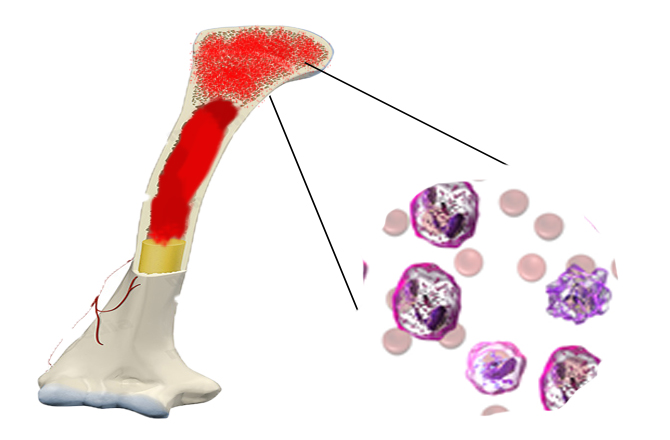

Chronic lymphocytic leukemia (CLL) affects B cell lymphocytes, which originate in the bone marrow, develop in the lymph nodes, and normally fight infection by producing antibodies. Most people are diagnosed without symptoms as the result of a routine blood test that shows a high white blood cell count. As it advances, CLL results in swollen lymph nodes, spleen, and liver, and eventually anemia and infections. Early CLL is not treated, and late CLL is treated with chemotherapy and monoclonal antibodies. CLL is treated by chemotherapy, radiation therapy, biological therapy, or bone marrow transplantation. Symptoms are sometimes treated surgically (splenectomy - removal of enlarged spleen) or by radiation therapy.
More